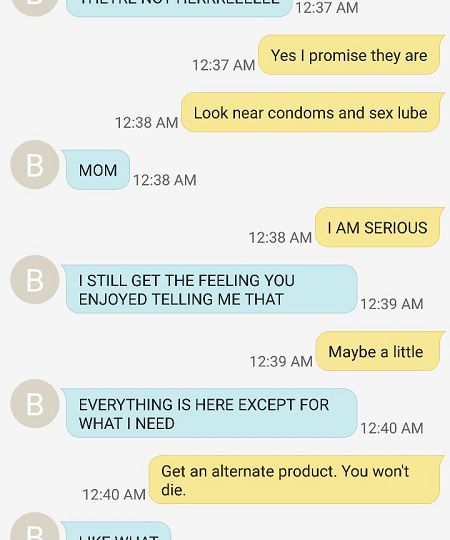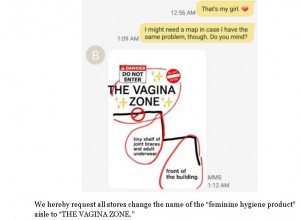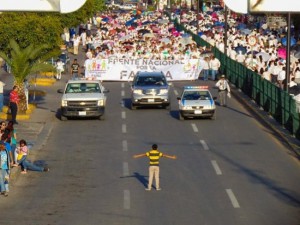
Parenting and sexuality, as a theme, appears to deal with the responsibility of being a parent and guiding the understanding and approach your child takes, to sexuality. Parents stay the same, identifiable as one grey mass, doing and saying the same things in the same ways as prescribed by those-who-know, helping their children understand life, including adolescence and sexuality. ‘Parent’ is a social construct, just as much as gender. Just as we ‘know’ as a society the correct, acceptable mix of human behaviours, knowledge and attitudes that we want in a child, we also ‘know’ as a society, the correct, acceptable mix of human behaviours, knowledge and attitudes that we want in a parent. Parenting and sexuality is about the ways in which all of us view parenting and view sexuality, approve, disapprove, accept or discriminate.
About 15 years ago, TARSHI came out with The Red Book, a resource book on sexuality education for 10- to 14-year-olds. I wasn’t any sort of a parent to a human child then, though I was one to my pack of dogs at home. Last year, I was one of the team that re-wrote an updated, revised version of The Red Book. This time, I had some sort of experience of being a parent to a human child as well. So, I integrated all of the ‘wisdom’ from these experiences with my children, furry and furless, into presenting sexuality education content through the book. It was my contribution as a parent to responsible parenting, extended to an increasingly vast group of parents who feel the same way about these things.
Today, I’d like to see a book on parenting and sexuality presenting the undiluted, non-prescriptive perspectives, observations and experiences of a diverse group of children, not adults, not parents. What kind of book would this be and what would it say about parenting and sexuality? I’m pretty sure it would include voices such as are in this post that went viral on social media. I absolutely love it. It’s an exchange of messages between a 13-year-old girl who is on her own while looking for tampons in the mall, and her mother, who is elsewhere, trying to guide her. Here’s a glimpse of the exchange:

Read the original Facebook post by mom, Belinda Hankins (who also blogs at Ninja Poodles). The comments to Belinda’s post make a great read too.
These voices extend across the spectrum of bodies, and speak of products like jock straps as well. In an article about buying jockstraps for her son, Anonymous speaks of the difficulties of decoding the size/numbers on this product. They are like a cipher the uninitiated will never crack. She says that her conversation with her child went thus:
“Let’s try the jockstrap since the brief isn’t working.”
“You want me to put that thing on my privates? How?”
“I don’t know, but I think we can figure this out.”
“Mom, I don’t think this is right.”
“Does everything fit in there? Is it covering everything?”
“Mom, my junk doesn’t fit.”
I Googled “Buying boys’ jock straps in India” and realised the conversation doesn’t happen here, at least not online. I got “Buy Mens Sexy Underwear in India”, and I even got “Second hand Men Sexy Underwear for sale on India’s largest auction and…”. Well. Ouch.
As a society, in our platforms of exchange of goods, products and services, how are we approaching parenting, children or sexuality? Stores are clearly catering to the constructed parent and child. There’s lots of toys, clothes, diapers, bedsheets and cute dangling, fluffy things to cluck at in stores catering to parent and child as a combination thali (platter). The day I see personal and sexual hygiene products in a store catering to mom and a teenaged me, I will kick up my heels and bray.

Let’s now go from tampons and jockstraps to diapers. Some parents sneak away when they smell a change due, waiting for the other parent or a hired caregiver to do the job. Some people take turns and put tally marks on a scoreboard for number of changes done. It’s a bit of a stretch, for me, to think of changing diapers as a part of sexuality. But now here’s some drama around changing diapers. In Arizona, when you change a diaper for your own baby, you could be convicted for child molestation. I read this article and understood this – that until we approach sexuality with accuracy, wisdom and clear intent, we risk criminalising non-sexual activity and behaviour in the attempt to curb negative things such as sexual violence and sexual abuse.
In such a world, parents will no longer be allowed any intimate physical contact with their children just in case it’s sexual. This may logically progress to bathing, breastfeeding, or post-potty botty washing. In the meantime, perhaps babies will learn to change their own diapers and wash their own botties as part of the natural process of evolution, which I am sure many parents will consider a great relief. We have to demystify the complexities of sexuality as well as parenting and not make life more complicated than it is for most of us on both fronts!
In Mexico this month, a 12-year-old boy stood, arms outstretched in the middle of the road against thousands of ‘pro-family’ protestors, trying to block their passage and their anti-gay campaign. This child understands what it is to embrace diversity. In his own words, “I have an uncle who is gay, and I hate the hatred”. This kid has more of value to offer the world on the meaning of family, parenting and sexuality, than those thousands of adults.

Cover image from Belinda Hankin’s Facebook post